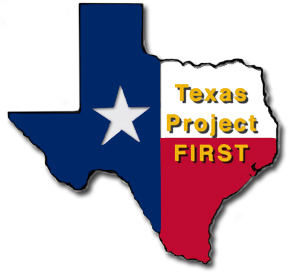en Español • Share • 
Most students with disabilities attending public schools  are protected from discrimination under both the Americans with Disabilities Act (ADA) and Section 504 of the Rehabilitation Act of 1975. The ADA is very similar – and in many areas identical – to Section 504.
are protected from discrimination under both the Americans with Disabilities Act (ADA) and Section 504 of the Rehabilitation Act of 1975. The ADA is very similar – and in many areas identical – to Section 504.
Both laws promote “inclusion” and require public schools to eliminate any barriers that would prevent a student from fully participating in the same programs and services offered to the general school population. The ADA requires all public entities, including schools, to “administer services, programs, and activities in the most integrated setting appropriate to the needs of qualified individuals with disabilities.”
The difference is that Section 504 applies only to public schools and other entities that receive federal funding; the ADA extends coverage of Section 504 to all state and local entities, including private schools, regardless of whether they receive financial assistance from the federal government. The ADA also extends Section 504 coverage to include persons without disabilities who are related to or associated with a person with a disability.
The ADA is divided into five “titles”:
Title I: Employment
Title II: State and Local Government Activities/Public Transportation
Title III: Public Accommodations
Title IV: Telecommunications Relay Services
Title V: Miscellaneous Provisions
Most education issues are addressed under Title II or Title III. Title II applies to all state and local government entities, including public schools, and is essentially the same as Section 504. Title III extends the provisions found in Title II and Section 504 to include “public accommodations”, such as private daycare centers, private elementary and secondary schools, as well as private postsecondary schools.
When would a student be covered by the ADA, but not Section 504?
Private Schools: Students attending private schools may be entitled to accommodations under the ADA Title III, but not Section 504, if that school does not receive any federal funding. Under the ADA, private schools are required to provide auxiliary aids and services to ensure that students with disabilities are not excluded, denied services, segregated or treated differently than other students. However, private schools are required to provide only “reasonable accommodations,” meaning those that would not change the fundamental nature of the program or result in undue administrative hardships or costs. Private schools run by churches may be exempt, because the ADA does not apply to “religious organizations or entities controlled by religious organizations”.
Postsecondary education: Students with disabilities, ages 3-21, are ensured a “free and appropriate public education” (FAPE) under Section 504. This changes when students enter postsecondary education. After high school, students are no longer entitled to a FAPE. However, under the ADA and Section 504, postsecondary schools must provide reasonable accommodations to instructional programs and facilities. “Reasonable accommodations” may include tutoring, counseling, referral, assistive technology and interpreters. Campus classrooms, facilities and housing must be fully accessible. There is an exception for older buildings; but any programs and activities in those buildings must in some way be made accessible to people with disabilities.
Postsecondary schools are required to have an ADA coordinator. Many postsecondary schools have an Office for Students with Disabilities. For more information, contact the student affairs department on your college campus.
Vocational Education: Students with disabilities who participate in community-based job training or placement programs may be covered by the ADA Title I if they need accommodations at a particular business or workplace.
Parents: Parents of students with disabilities are also protected under the ADA. All school programs open to parents must be equally accessible to parents with disabilities. For example, school plays or activities to which parents are invited must be in a location that is physically accessible to a parent who uses a wheelchair. In ARD meetings, accommodations such as Braille, tape recordings or other accommodations must be available to a parent who has a vision impairment and cannot read printed documents.
When Subject to Retaliation or Coercion: Under the ADA, school systems may not retaliate against students with disabilities who exercise their rights. Nor may they retaliate against those who assist others in exercising their rights. This would apply to a parent who files an ADA complaint based on disability discrimination to their child.
Like Section 504, the ADA is a civil rights law. Complaints of ADA Title II and Title III violations as they relate to education must be filed through the Office of Civil Rights at the U.S. Department of Education.
There are many areas in which the ADA, Section 504, and the IDEA overlap to provide protections for students with disabilities and their family members. We have provided a side-by-side comparison of these three keys laws to help clarify the basic similarities and differences.
Resources:
Office of Civil Rights at the U.S. Department of Education
Questions and Answers on Disability Discrimination under Section 504 and Title II
ADA Homepage at the U.S. Department of Justice
Child Care Centers and the Americans with Disabilities Act
Commonly Asked Questions about Child Care Centers and the Americans with Disabilities Act
Southwest ADA Center Resources
IRLU - providing research, education and consultation in the areas of independent living, home and community-based services, and the Americans with Disabilities Act.
